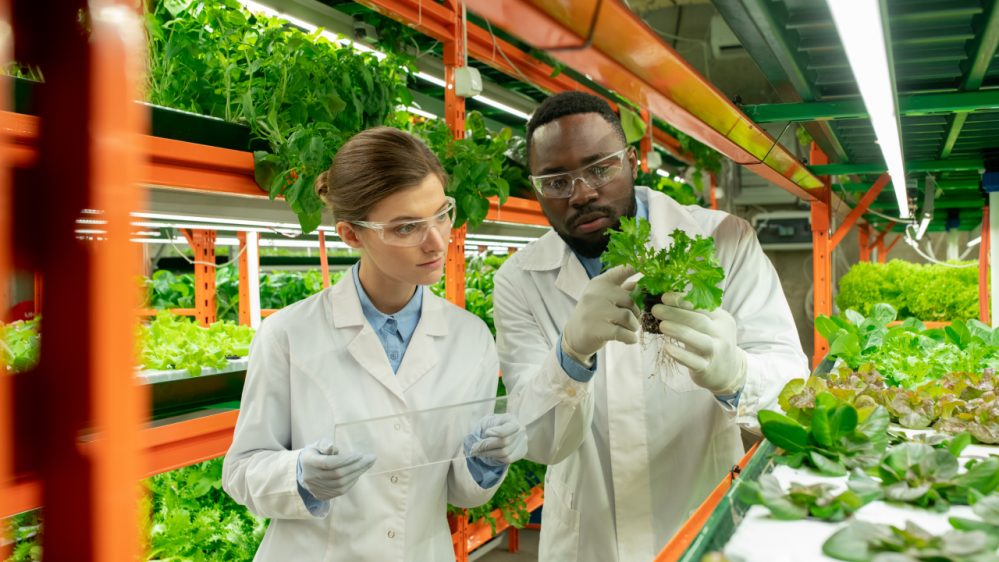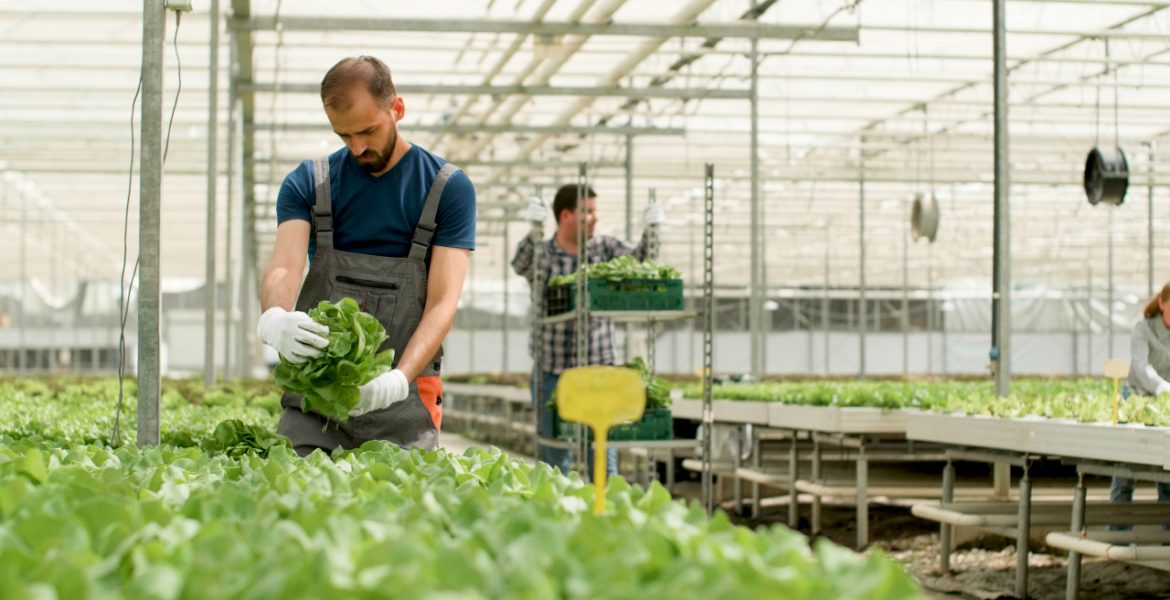If you appreciate both food and science, an agricultural chemicals career may be a good choice for you. As an agricultural chemist, you assist farmers in maintaining their crops while also ensuring the safety of the nation’s food supply. All the fertilizers in the world won’t be able to combat a pest invasion that wipes out an entire field or a disease that threatens a herd without the support of agricultural chemists.
If you are still wondering, “Is agricultural chemicals a good career path?” then keep reading to learn more about this amazing career.
What Is an Agricultural Chemist?
An agricultural chemist is a specialized individual whose responsibility is to produce food with nutritional value and feed in a sustainable and viable manner while also considering the surrounding environment and ecology.
Agricultural chemists are in charge of doing research in various sectors and assisting in developing agricultural products, such as developing molecules or chemical compounds to control weeds or other pests. They must also conduct tests on compounds to determine the influence of the chemicals in question on the environment and food.
What Does an Agricultural Chemist Do?
 This work requires you to research farm goods to find strategies to improve their quality and quantity. As an agricultural chemist, you must complete the following tasks:
This work requires you to research farm goods to find strategies to improve their quality and quantity. As an agricultural chemist, you must complete the following tasks:
- Improve chemical compositions in collaboration with other research professionals such as biochemists, biologists, toxicologists, and others to protect and produce optimal crops or livestock.
- Find ways to design and execute solutions to biochemical processes that affect plant and animal growth, both cause and effect.
- Produce analyses and products based on significant study findings.
- Contribute to the development of sales and purchasing of chemicals.
Other daily tasks include:
- Evaluating heat, freezing, packing, and canning methods,
- Fine-tuning the effects of processing on variables such as freshness, appearance, taste, and vitamin content of food, and
- Conduct tests on various samples to ensure that food and beverages meet food/agricultural regulations and labeling requirements.
Is Agricultural Chemicals a Good Career Path?
A job as an agricultural or food scientist is a good fit for someone with solid communication skills, high arithmetic abilities, the ability to evaluate data, and the ability to ask precise research questions. This would be a fulfilling job for those who wish to make the food business run safely and more efficiently.
Agricultural chemicals is a promising path where the opportunities are enormous. Our population is ever-growing, which means that this sector produces quality food for everyone every single day, and as long as there are people around, the chances for you to find a job in this field are big.
Suppose you want to work in a more hands-on capacity. In that case, the flourishing agriculture industry offers opportunities in business-focused professions such as handling money (agribusiness banking) or selling seafood (agribusiness marketing). Agricultural chemistry provides career options in food production, agronomy, biotechnology, and animal science. Additionally, considering the stability and evolving opportunities in electric utilities, exploring careers in this sector alongside agriculture could be a wise decision. With the increasing focus on sustainability and renewable energy, roles within electric utilities are expanding to meet the demands of a changing landscape
How To Become An Agricultural Chemist?
 Like most career paths, agricultural chemicals, above everything else, require a bachelor’s degree.
Like most career paths, agricultural chemicals, above everything else, require a bachelor’s degree.
A four-year college degree in the appropriate topics such as chemistry, biology, or food science and experience in product development is required to become a successful food or agricultural scientist. Some chemists continue their education by earning a master’s degree in food science.
If you want to take extra steps to become an agricultural chemist, you can initialize the process of taking/following private courses, create strong networking skills, meet professionals in the field, and do more research on what you want to become.
If you successfully complete the steps above, a bright future awaits you.
Career Paths and Salaries of an Agricultural Chemist
Agricultural chemicals is a promising path with great prospects. With such a degree you can explore the labor market and find yourself working some of the jobs listed below:
- Chemist – The average gross salary for a chemist in Switzerland is 98,000 CHF per year. They also get a 13th salary and a bonus.
- Research Associate – The estimated annual salary for a research associate is approximately 92,511 CHF per year, including the base pay of 87,478 CHF and the additional pay of around 5,033 CHF per year.
- Food Scientist – The average annual pay for a food scientist is 92,203 CHF. The lowest salary ranges from 85,000 CHF and the highest can go up to 107.000 CHF per year.
- Microbiologist – For a microbiologist, the median yearly gross pay at 100% workload, including 13th salary and bonus, goes up to 91,325 CHF. The salaries range from 43,200 CHF to 140,000 CHF
- Chemical Plant Operator – The average gross salary for a chemical plant operator in Switzerland is 78,541 CHF or 38 CHF per hour. As a senior, you can expect a yearly payment of around 96,412 CHF.
The Bottom Line
Agricultural chemists’ working circumstances vary widely depending on who employs them and what tasks they must perform. But, overall, an agricultural chemical is a worth-it career for those who aspire to work in different food production areas and add to the overall improvement of our lives.
And if you decide to pursue such a career in Switzerland, we have some good news for you; Switzerland has gained international acclaim for its richness and success, so rest assured — your hard work will undoubtedly pay off.
FAQs About a Career in Agricultural Chemicals
What are some common misconceptions about a career in agricultural chemicals?
Some common misconceptions may be that the field only involves working with hazardous substances or that it’s strictly lab-based. In reality, agricultural chemists also collaborate with other professionals, engage in fieldwork, and contribute to policy-making.
Is it necessary to have a Ph.D. to pursue a career in agricultural chemicals?
While a Ph.D. can open up opportunities for advanced research positions and higher pay, it’s not always necessary. Many positions in agricultural chemistry can be obtained with a bachelor’s or master’s degree.
Are there opportunities for agricultural chemists to work in government positions?
Yes, there are opportunities for agricultural chemists to work in government roles. These could be regulatory roles overseeing agricultural practices or research positions developing new technologies for food production and safety.
What is the role of technology in agricultural chemicals?
Technology plays a significant role in this field. From laboratory instruments used for analyzing samples to computer modeling and data analysis tools for research, technological proficiency is a key skill for agricultural chemists.
Are there opportunities for entrepreneurial pursuits within the agricultural chemicals industry?
Yes, some agricultural chemists choose to start their own businesses. These might be consulting firms, agricultural product development companies, or technology solutions for agriculture.
What is the gender distribution in the field of agricultural chemicals?
The gender distribution in agricultural chemicals can vary widely depending on the region and specific sector. However, like many STEM fields, it has traditionally been male-dominated but is becoming more diverse.
What types of industries employ agricultural chemists?
Agricultural chemists are employed by a variety of industries, including agricultural technology companies, food and beverage companies, research institutions, universities, and government agencies.
Is the field of agricultural chemicals affected by economic recessions?
While all fields can be affected by economic downturns to some degree, the need for food safety, production, and sustainable practices generally ensures a steady demand for agricultural chemists.
How does the field of agricultural chemicals contribute to tackling climate change?
Agricultural chemists can contribute to tackling climate change by developing sustainable farming practices, reducing the environmental impact of agricultural chemicals, and researching the effects of climate change on crops and livestock.
How are the principles of green chemistry applied in the field of agricultural chemicals?
Green chemistry, or the design of chemical products and processes that reduce or eliminate the generation of hazardous substances, can be applied in agricultural chemicals by developing safer pesticides, improving waste management in farming, and researching sustainable farming practices.
How can advancements in agricultural chemicals contribute to food security?
Agricultural chemists play a pivotal role in food security. Through the development of more effective fertilizers, pesticides, and growth enhancers, agricultural chemists can increase crop yields and improve the resilience of crops to pests and diseases. This not only ensures a steady food supply but can also help in reducing hunger and malnutrition globally.
What are the potential environmental impacts of agricultural chemicals?
Agricultural chemicals such as fertilizers, pesticides, and herbicides, while crucial for enhancing crop yield and protecting plants from pests and diseases, can also have significant environmental impacts. Excessive use of these chemicals can lead to runoff into water bodies, causing water pollution and harming aquatic life.
Some pesticides can also impact non-target species, leading to a decrease in biodiversity. It’s therefore crucial for agricultural chemists to continually research and develop safer and more environmentally friendly products.


